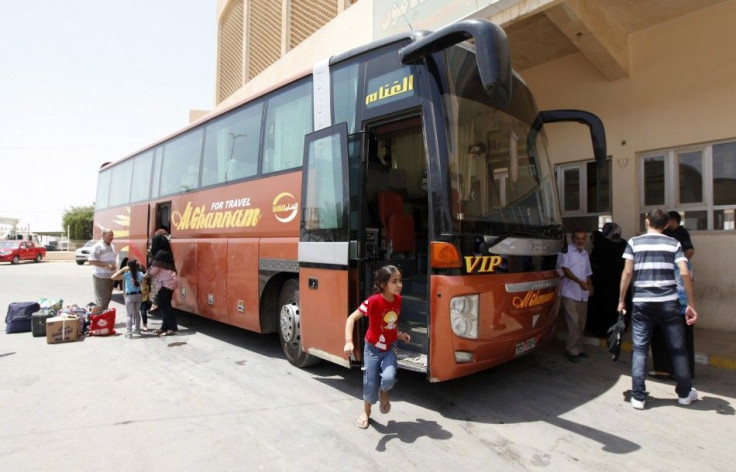Fighting Between Syrian Army And Rebels Rages In Aleppo, Damascus
Israeli military official calls for caution on chemical weapons response.

Fighting between rebels and army troops raged overnight and into Tuesday in the central districts of Aleppo and Damascus as a senior Israeli defense official said his country should determine the right time to take out Syria's chemical and biological weapons should they risk falling into the hands of Hezbollah.
Rebel forces, mostly from the Free Syrian Army, were checking loyalist soldiers and intelligence police nationwide. The army's response to the rebel siege of Damascus has created military-control vacuums in other parts of the country that have been exploited by rebel forces.
However, key to rebel victory will be taking and holding a major city, which Syrian forces will push hard to prevent.
There's no doubt the momentum is with the rebels, British military analyst Paul Smyth told Agence France-Presse. The amount of violence, the geographic spread of violence, the arms that are available to the rebels, has increased over the past two months.
Indeed, the FSA has emerged as the primary opposition military force; the other being hardcore Salafist Islamists that Western powers will likely work to prevent taking power. Russia has accused Gulf Arab states, along with U.S. intelligence and Turkey, of collaborating to destabilize Syria.
Moscow insists that the government of President Bashar al Assad is the legitimate and sovereign authority of Syria. Last week Russia blocked measures to strengthen sanctions against Syria, which has been a major customer for Russian military weapons.
Outside of Aleppo, Syrian troops fought back with tear gas and machine guns against a prison riot, killing 15 inmates, activists told Reuters, which was unable to independently confirm the report due to the government's ban on foreign press.
Meanwhile over 100,000 refugees have fled into neighboring states, including Iraqis that had escaped their homeland years earlier and had started over in their adopted country, which is now no longer safe. Thousands of Iraqis have once again uprooted in the heat of conflict, loaded up their belongings and headed east.
No one lives in my district anymore, we all tried to escape, Iraqi citizen Hannan Abd el-Amir told Reuters as she crossed the border into Iraq after fleeing a town near Damascus early Tuesday morning. What else can I do? Syria is burning.
In Israel, Benjamin Gantz, chief of general staff for the IDF, said to Knesset members on Tuesday that any military action by Israeli Defense Forces in Syria to destroy chemical weapons could cause the conflict in the country to spread beyond its borders.
They [the Syrian army] are guarding it [the weapons stockpile] and have even increased security so it won't fall into rogure hands although this does not mean it will stay that way, said Gantz, according to the Jerusalem Post. We need to take into consideration what will remain after we act and whose hands it will fall into.
Israel Radio quoted another high ranking Israeli Defense Ministry official as saying the President Bashar al Assad's forces are still in control of the controversial weapons and downplayed any concern that the Syrian government would use these weapons against Israel.
In Cyprus, which currently holds to European Union presidency, EU officials were told by the United Nations High Commissioner for Refugees that 115,000 Syrians have fled to neighboring states and that a plan must be put in place to deal with the crisis. An estimated 42,000 of these refugees are in Turkey; the rest are in Lebanon, Jordan and Iraq.
© Copyright IBTimes 2025. All rights reserved.






















